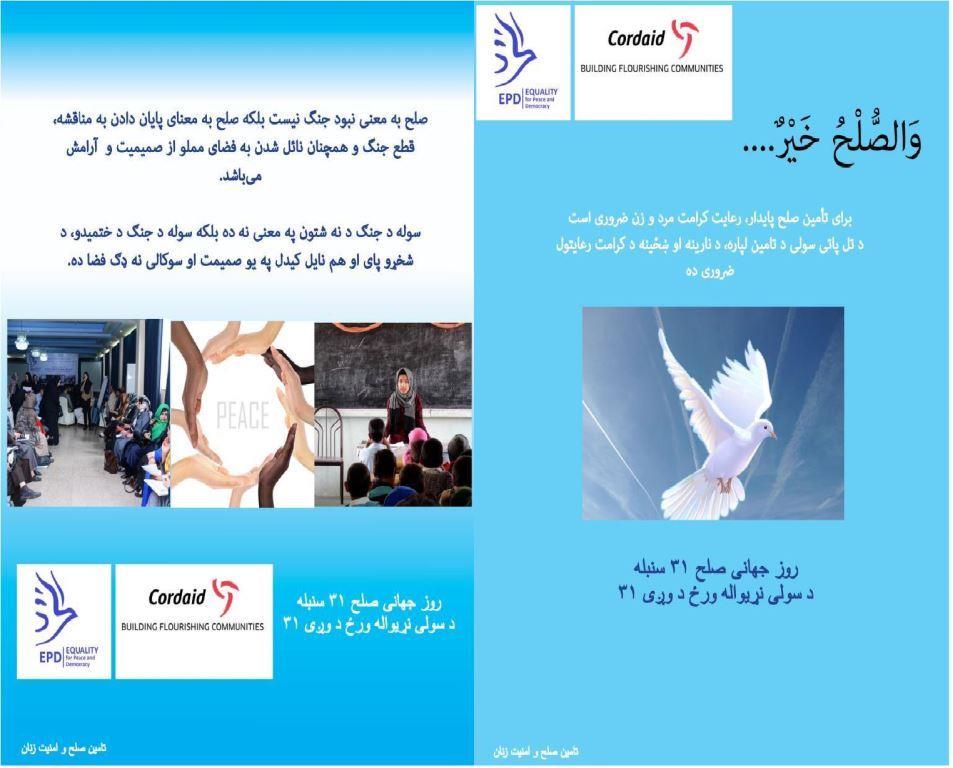 Peace merely does not mean to stop war and violence but it also refers to an environment where everyone without distinction of race, language and culture has equal rights and access to resources.
Peace merely does not mean to stop war and violence but it also refers to an environment where everyone without distinction of race, language and culture has equal rights and access to resources.
On 21 September 2016, EQUALITY for Peace and Development by facilitation of the provincial coordinators (of the Provincial Women Network) celebrated the international peace day in 14 provinces of Afghanistan including Kabul, Nangarhar, Bamyan, Herat, Faryab, Kandahar, Kunduz, Daikundi, Laghman, Parwan, Paktia, Helmand and Badakhshan. The conferences brought together around 500 participants throughout the country to mark this prominent event and express respect and esteem for this day. The attendees included representatives from provincial councils, justice department, the governor office, women’s affair department, civil society, community member, media and many other governmental and non-governmental institutions.
The programs in each province inaugurated with speeches conducted by prominent representatives from the governor office and the women affair department, academia and other governmental and non-governmental organizations. They praised and appreciated the international peace day and emphasized on importance of role of women in bringing peace. Ms. Faeza Durkhani, university lecturer said that “Afghanistan as a post war country is still struggling to achieve a sustainable peace and women can play a vital role in building peace.”
affair department, academia and other governmental and non-governmental organizations. They praised and appreciated the international peace day and emphasized on importance of role of women in bringing peace. Ms. Faeza Durkhani, university lecturer said that “Afghanistan as a post war country is still struggling to achieve a sustainable peace and women can play a vital role in building peace.”
Then, the provincial coordinators in the related provinces delivered speeches about PWNs aims and objectives, importance of peace building and its future effects on women’s lives. It is worth mentioning that during these events in the aforementioned provinces, EPD also used posters designed to raise awareness on this event and ask the participants to contribute in peace building in Afghanistan. The last session allocated for Q and A giving the opportunity for the attendees to share their opinion and raise their questions related to peace especially women’s peace and security.
Almost in every post conflict country, women have been left out of peace-building efforts. They have been excluded from formal peace processes, absent at the peace table, underrepresented in parliaments that are developing policies and underrepresented in peacekeeping forces. Women are primarily seen as victims of conflict – as opposed to perpetrators, or agents of change. Women’s presence at the peace processes is not only critical to call for issues specific to themselves but they can also raise issues that affect society as a whole. Women can bring a unique perspective on the root causes of conflict, its impact on the daily life or ordinary people, and the kind of future that is expected, if they are included in the peace processes. EPD as a women led organization wish and hope for the better participation of women in the upcoming peace processes for the better future of Afghanistan.

